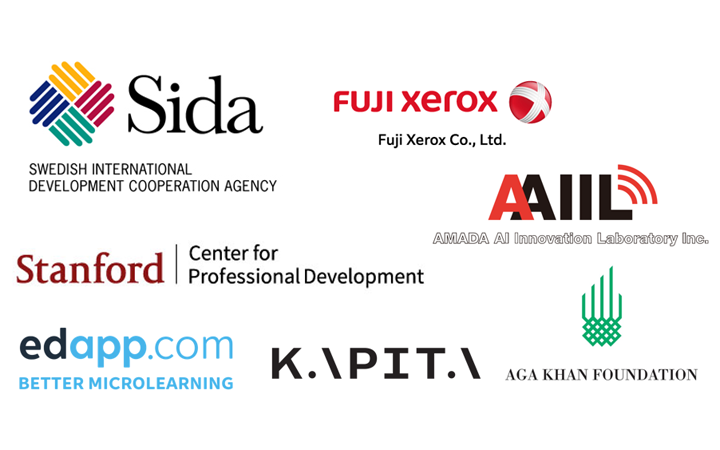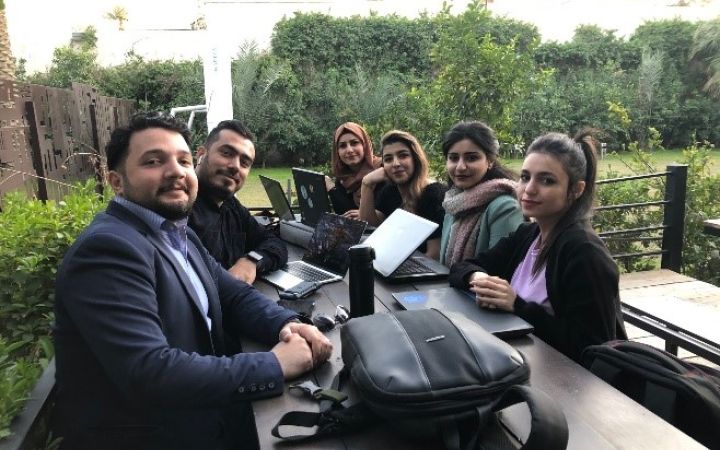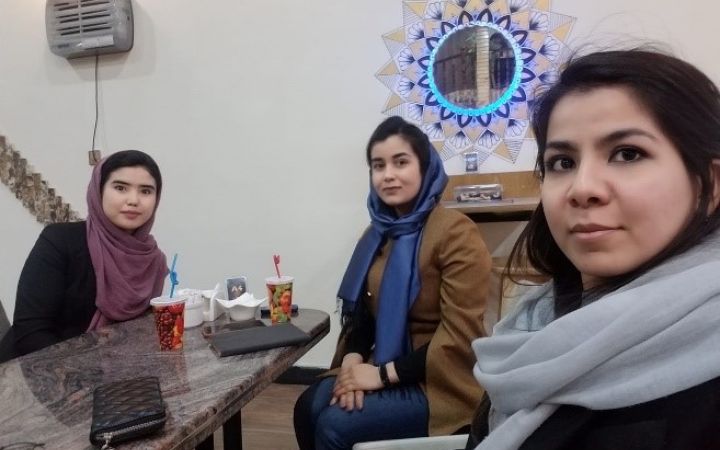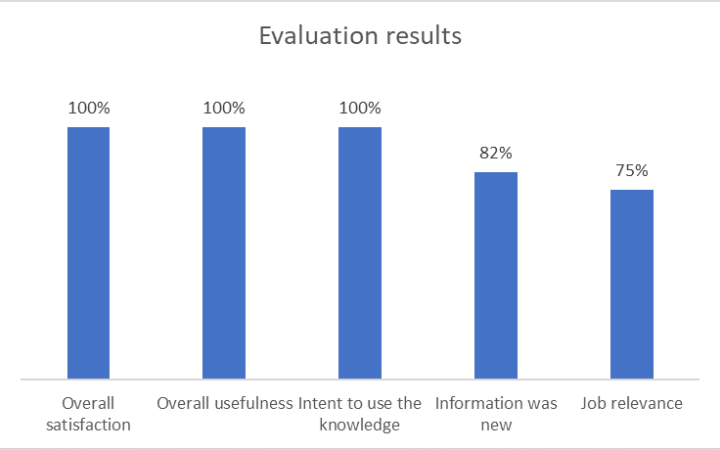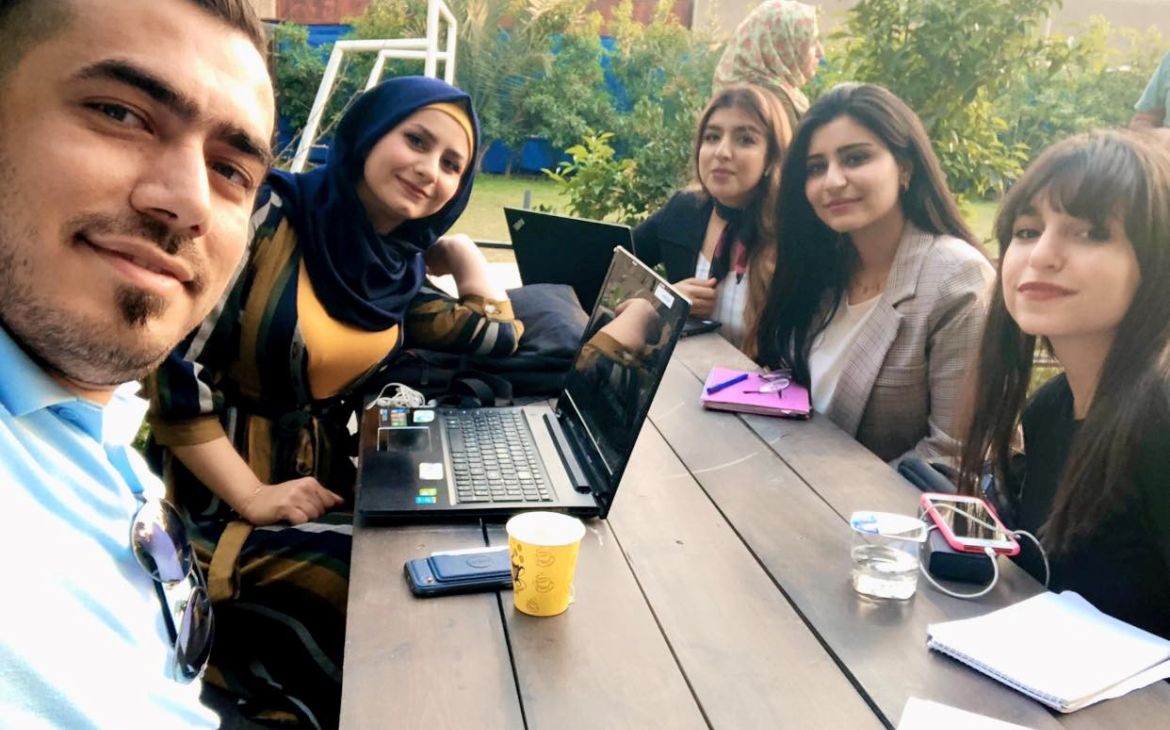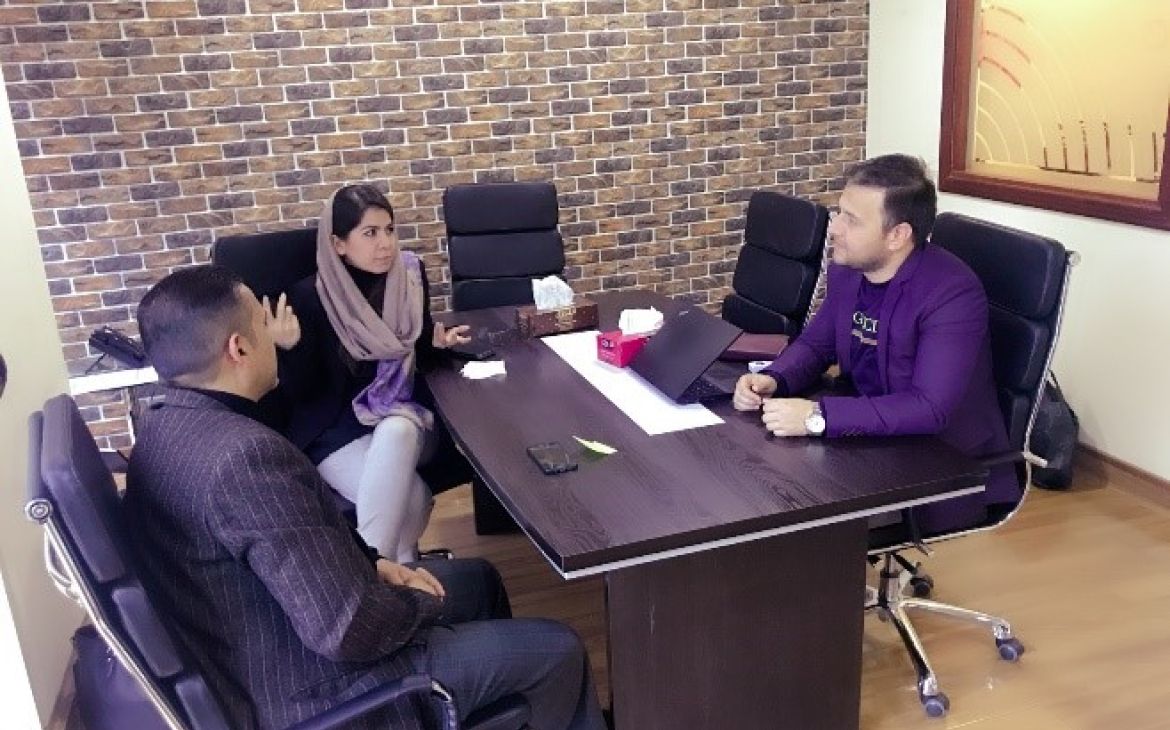15 June 2020, Geneva, Switzerland – UNITAR’s Division for Prosperity successfully completed a Swedish International Development Agency (SIDA) -funded pilot programme on “Frontier Technologies for Sustainable Development: Unlocking Women’s Entrepreneurship through Artificial Intelligence (AI) in Afghanistan and Iraq” which benefitted 32 women entrepreneurs from various sectors in the two countries.
Launched on 31 January 2020, the 3-month Programme offered the participants an exceptional learning experience where they were engaged and challenged to learn, innovate, collaborate, and develop individual peer-reviewed business model that bridges new concepts and ideas to real-world applications and development challenges.
The content was curated from Stanford University's Innovation and Entrepreneurship Programme and complemented by lectures on Artificial Intelligence (AI) from Fuji Xerox Co., Ltd. and Amada AI Innovation Laboratory Inc. of Japan. The Programme was facilitated by international Experts and contextualized by local Coaches who are part of UNITAR’s growing alumni network on the ground. Over the past several years, UNITAR has developed a network of local Coaches and Experts to help sustain entrepreneurship and social entrepreneurship in the region.
The overall objective of the Programme was to empower the women entrepreneurs to follow their entrepreneurial aspirations that provide positive social, economic, and environmental impact and contribute to the achievement of the Sustainable Development Goals.
During the graduation webinar, UNITAR’s Executive Director Mr. Nikhil Seth praised the participants' commitment to gain knowledge and contribute to the socio-economic transformation of their communities through entrepreneurship despite existing challenges brought by social unrest and the Covid-19 pandemic in their countries.
At the end of the training programme, each participant had a peer-reviewed lean canvass, business model and pitch deck that will harness artificial intelligence that addresses a specific development challenge in their country.
Leveraging Partnerships, Supporting Countries in Special Situations through the Strategic Framework Fund (SFF)
The Programme was initiated in October 2019 with the seed funding from the Swedish International Development Agency’s (Sida) contribution to the UNITAR Strategic Framework Fund (SFF). The SFF focuses on meeting the learning and capacity development needs of beneficiaries from countries in special situations, including the least developed countries, the landlocked developing countries, the small island developing States and countries in and emerging from conflict.
In addition to SIDA’s support, the Programme leveraged partnerships with a range of knowledge organizations and research related bodies who are best providers in their domain for greater outreach and impact. Support from Stanford University, EdApp, Fuji Xerox Co., Ltd., Amada AI Innovation Laboratory Inc., The Aga Khan Foundation in Afghanistan, and the KAPITA Business Hub in Iraq were all instrumental in the successful delivery.
Combining expertise from the academia and the private sector was appreciated by the participants. A participant comment from Baghdad, Iraq summarized her learning experience despite the challenges on the ground by saying, "The programme and the Stanford courses are life changing point for me. Everyone should have this chance and get the benefit of it. The topics, the way they are presented, the exercises, and how it helped me to learn more is one of the best learning experiences I have."
Focusing on the Benefits of Gender Equality in Entrepreneurship
Empowering women and promoting gender equality through entrepreneurship were important considerations of the Programme. A webinar that aims to understand gender-specific challenges women entrepreneurs face was conducted midway through the 3-month Programe. Discussions on real-life examples in Afghanistan and Iraq were discussed with the subject-matter Experts along with possible measures to overcome them. In addition, online courses on Gender and the SDGs as well as on Gender and Why Gender Equality were integrated in the syllabus.
The participants welcomed the wholistic approach indicating that the gender topic is 100% relevant in the context of their individual self-led projects. In addition, the level of confidence towards the knowledge and awareness in promoting gender equality they had before and after the webinar increased by 36%. A similar increase in the level of confidence in applying their knowledge was recorded for the 2 online courses on Gender and the SDGs and Gender and Why Gender Equality.
What was also remarkable was that the participants have indicated 59% increase in the level of confidence in initiating and implementing gender-sensitive start-up business using AI.
Overall, the methodology, relevance, intent to use the knowledge learned, and the achievement of learning objectives all received very high marks.
COVID-19: Adapting Training Methodologies to the "New Normal"
Training and development activities have been understandably taken a hard hit during the Covid-19 crisis especially where face-to-face delivery is required. Fortunately, the Programme has been designed from the start to allow flexible delivered taking into consideration the social unrest, frequent power supply failure, unreliable internet connection, and a range of other operational challenges. When the Programme was launched, civil unrest was widespread. A large part of the programme delivery was already taking place online with a few in-person coaching sessions taking place whenever security and safety allows it.
With the Coronavirus disease and the resulting lockdown impacting life and movement on the ground, the programme shifted seamlessly to full online delivery. Participants were able to adjust to online methodologies presented through webinars, online courses, videoconference, and other online tools to deliver coaching sessions, peer-to-peer review, group activities, and self-led projects.
One key aspect of the high completion and seamless adaptation is UNITAR's strong network of local coordinators and coaches who have been mobilized to ensure continuing learning support while instability and disruption take place.
The Covid-19 pandemic has accelerated UNITAR's adaptation and harnessing of innovative technologies to scale-up and sustain training activities to reach out where it is needed the most and remain fit for the implementation of the 2030 Agenda.
Tangible Results, Programme Sustainability and Way Forward
At the end of the 3-month period amidst Covid-19 taking place in Afghanistan and Iraq, 28 women successfully completed the Programme. These successful participants will now be part of UNITAR's growing alumni network in Afghanistan and Iraq which can be harnessed to strengthen entrepreneurship and social entrepreneurship initiatives in the region.
Some of the notable business models that were presented and peer-reviewed in the Programme include solutions to address challenges related to environment (waste recycling platform/app), health and well-being (mental health support app, beauty salon app, home fitness app, and online yoga), employment (platform for job seekers and employers), information and communication (knowledge sharing platform, women's printing services, office space rental location app), eCommerce/eServices (online supermarket platform/delivery app, online service platform for female medical students, online platform/booking for event halls, online platform and tracker for government transactions), education (on demand Arabic training material development, eLearning app, training platform), handicraft and fashion (online marketing tools for handicrafts and fashion accessories), social entrepreneurship (online services for minorities and marginalized communities).
Asked what will they do next after the training, their responses were "to focus more on unemployed women and to help them build some skills to get jobs, continue developing my business model, share the knowledge and empower other women, find better ways to use AI in addressing development challenges, develop my own business in order to create more job opportunities for people and serve to my society, use my new knowledge and advance further my start-up business, help my business and other companies with similar challenges, advance my career and raise awareness on entrepreneurship, influence policy recommendations in my organization relating to start-ups, start my own business, harness technology and promote gender equality, start a business and address problems in my country, mobilize the youth to use the knowledge I learned, support women's entrepreneurship, advocate application of AI to address development challenges, and support my country especially on gender equality".
Feedback from the participants on the overall satisfaction, usefulness, and intent to use of the knowledge learned are all 100%.
About Swedish International Development Agency (Sida)
The Swedish International Development Cooperation Agency, Sida, is a government agency working on behalf of the Swedish parliament and government, with the mission to reduce poverty in the world. For more information, visit https://www.sida.se/English


